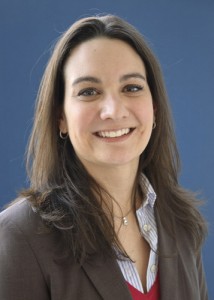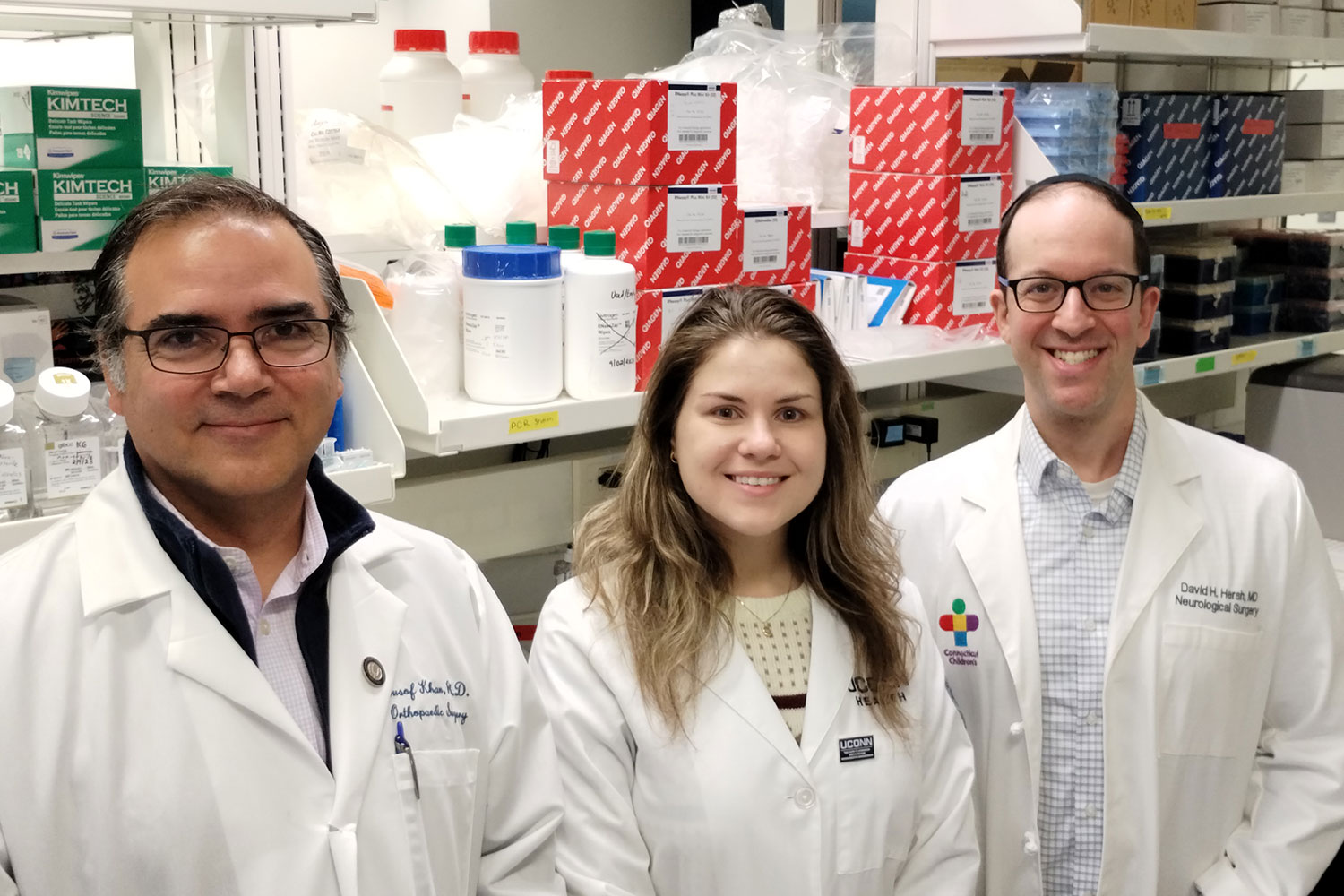
The UConn Health Center’s 2011 Graduate School commencement speaker is already well involved in the next scholarly phase of her life.
“I’ve always been interested in science, particularly biology,” says Kristina Kapinas, who defended her biomedical sciences Ph.D. thesis in October. Since November she has been a postdoctoral fellow at UMass Worcester. “Science is fun because you’re always doing something new and trying to solve a problem, sort of like solving a puzzle. I like puzzles. There’s never a clear path, so you get to come up with your own ideas and theories to test.”
As a Ph.D. student at the UConn Health Center, Kapinas studied the role of ribonucleic acid in bone, specifically, how a particular microRNA promotes the maturation of osteoblasts. She’s published two papers and is close to submitting a third. She also has submitted a review article that’s bee accepted for publication later this year.
She credits her adviser, assistant professor of medicine Anne Delany, with teaching her how to design experiments properly, write scientifically, manage people and projects in the lab, and think like a scientist.
“You don’t realize how much you didn’t learn in undergrad until you work in a lab and are independent,” Kapinas says. “She prepared me in ways that I never imagined.”
Kapinas, born and raised in Bethlehem, Pa., graduated from Rensselaer Polytechnic Institute in Troy, N.Y., with a dual degree in biochemistry/biophysics and biology. Her postdoctoral work focuses on the molecular mechanisms that drive human embryonic stem cell differentiation and how specific transcription factors contribute to the progression of mesothelioma.
“The reason I do research is so that we can better understand an organ or a disease so that others can use that information to develop better treatment or prevention options,” Kapinas says. “I like basic research and academia seems more suited to that, versus drug development at a biotech or pharmaceutical company. After my postdoc I would like to continue my studies in an academic environment as a principal investigator with my own lab.”
Kapinas says she plans to use her commencement speech to tell her classmates to be open-minded, persistent and patient, qualities that she says helped dramatically shape her research experience at the Health Center.
“I have specific examples from the lab to share about each of these qualities, mostly funny,” Kapinas says. “I want to point out my mistakes and learning experiences so that people can look at themselves and be willing to change and learn, because only good can come out of it.”


